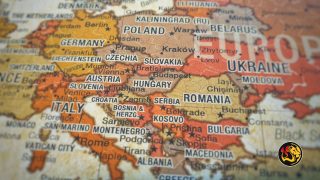Hungary Withdraws From Russian-Controlled Bank After US Sanctions

By Stefan J. Bos, Chief International Correspondent Worthy News
BUDAPEST (Worthy News) – Hungary’s nationalist government has decided to withdraw its representatives from the Russia-controlled International Investment Bank (IIB) and will quit it after the U.S. imposed sanctions late Wednesday and planned more punitive measures.
But Hungary’s decision did little to ease tensions with Washington as U.S. officials said Thursday that a bipartisan group in the U.S. Congress is drafting more sanctions that would also target leading Hungarian political figures tied to the Orbán government. The U.S. sanctions bill would name former officials and government supporters, mostly affiliated with the rightwing Fidesz party of the prime minister, Viktor Orbán.
U.S. officials familiar with the drafting process said the legislation had been prepared since last year and is due to go before Congress as soon as next month. The bill is likely to draw broad support, according to officials familiar with the drafting process.
Hungary’s withdrawal from the Russian-controlled bank based in Budapest did not appear to have prevented the upcoming Congress vote on more sanctions against Hungary. It was also unclear when or if the IIB would close its headquarters in Hungary’s capital.
The withdrawal of Hungary from the IIB, announced by the Economic Development Ministry, came as the country became increasingly isolated over its ongoing support for the bank.
The IIB was seen as a “Kremlin bank” and “spy bank” by critics. Hungarian protesters called it the “Putin bank,” referring to Russia’s President Vladimir Putin.
However, the Hungarian government expressed frustration that the United States had imposed sanctions on three top officials of IIB in Budapest.
NO COLONY
“We accept and understand that we represent different positions. But we don’t understand why pressuring other states to change theirs is necessary,” said Hungarian Foreign Minister Péter Szijjártó. “Hungary is a state. Therefore it should be treated as one instead of a colony,” he told reporters.
The three sanctioned bank officials, Russian nationals Nikolay Kosov, Georgy Potapov, and Hungarian Imre Lászlóczki, maintained ties to IIB despite Russia’s invasion of Ukraine, the U.S. noted.
Lászlóczki, a deputy head of IIB, earlier served as Hungary’s Ambassador to Azerbaijan and Kazakhstan.
Another representative at IIB was Economic Development Minister Márton Nagy, sitting on the board of governors.
The sanctions underscored broader tensions over Russia between Hungary and the United States, both members of the NATO military alliance.
The Biden administration said Hungary ignored U.S. concerns about the “opaque Kremlin platform,” referencing the IIB bank that moved its headquarters to Budapest from Moscow in 2019.
Most of IIB’s EU backers — the Czech Republic, Slovakia, Bulgaria, and Romania — left or will withdraw from the bank after Russian President Vladimir Putin sent his forces into Ukraine a year ago.
LARGE STAKE
At the end of January, Hungary held a 25.27% stake in IIB, the second most significant stake after Russia with 45.44%, according to the bank’s website.
Other Western countries have seen Hungary as one of the most vocal supporters of Putin by making banking and energy deals with Moscow despite being a NATO member.
Prime Minister Orbán has avoided personally criticizing Putin despite condemning Russia’s invasion of Ukraine.
Instead, his government agrees on new energy deals with Russia, angering other Western allies and Ukraine. Ukrainian President Volodymyr Zelenskyy’s economic advisor said that Hungary, through its agreements with Russia, is sponsoring Russia’s ongoing military invasion of Ukraine, including war crimes.
“If you’ve seen the video where Russians cut the head off a Ukrainian soldier — the Hungarians are paying for the knife,” said the adviser Oleh Ustenko.
“You have to be completely blind not to see what kinds of crimes you are sponsoring. Buying more gas from the Russians means you are giving them more capacity to escalate the war,” Ustenko claimed.
Hungary’s government has vehemently denied wrongdoing saying the country heavily depends on Russian energy but condemns Moscow’s invasion of Ukraine.
If you are interested in articles produced by Worthy News, please check out our FREE sydication service available to churches or online Christian ministries. To find out more, visit Worthy Plugins.
